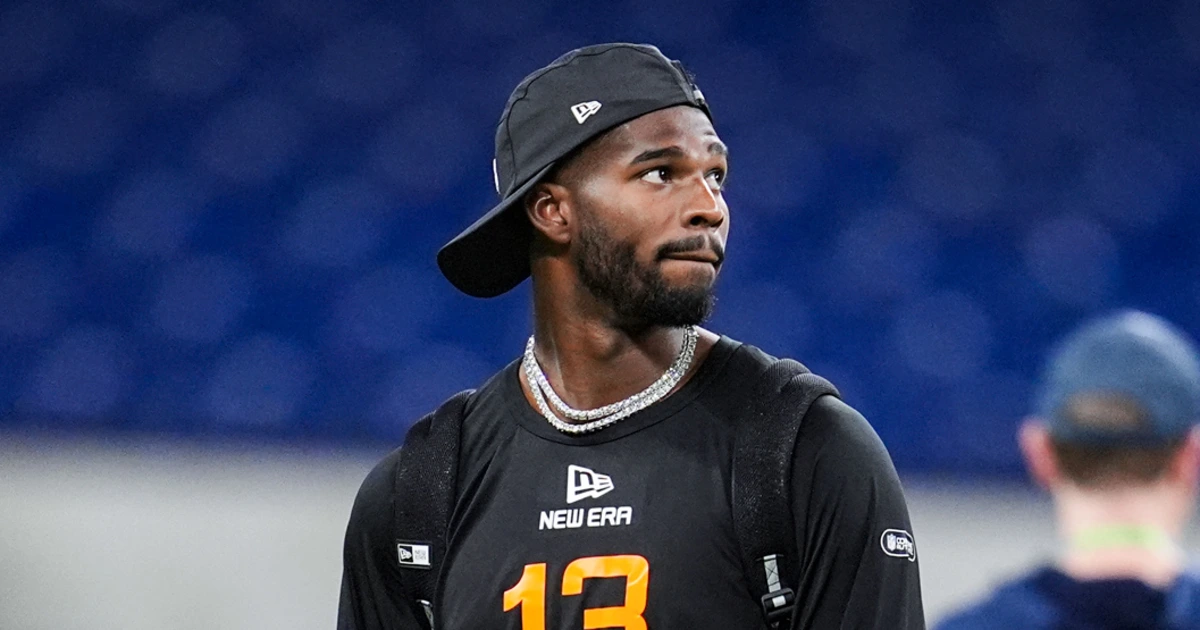When the first round of the NFL draft began Thursday, perhaps the biggest question of the night was where Colorado quarterback Shedeur Sanders would be selected.
Could Sanders go third overall to the New York Giants? Would the quarterback-needy Pittsburgh Steelers scoop him up at No. 21? Even if Sanders didn’t go in the first round, the general belief among draft experts seemed to be that Sanders was the second-best QB in the class.
Instead, he wasn’t even the first quarterback his team drafted.
The Cleveland Browns on Saturday ultimately rolled the dice on Sanders with the 144th pick in the draft — 50 selections after already taking Oregon quarterback Dillon Gabriel. Overall, Sanders was the sixth signal caller taken.
How did Sanders fall so far?
It starts with the true evaluation of him as a prospect.
“This happens every year in the draft,” NBC Sports’ Chris Simms, a former NFL quarterback, said. “Too many people early on in the process — too many unqualified people — make qualifying statements. And it misleads the public. I’ve been saying for six weeks, don’t be surprised if [Sanders] falls.”
According to Simms, Sanders may have been immune to the typical public criticism of a quarterback prospect because of his stature as the son of Hall of Famer Deion Sanders. But Sanders was far from a sure thing.
While his accuracy was lauded by most draft experts, Sanders was questioned for holding on to the ball too long and taking too many sacks. His arm strength was also an issue.
“The great quarterbacks have something great they can visibly do, an elite physical trait,” Simms says. “I didn’t see that with any of the [quarterback prospects] besides Cam Ward.”
Simms also adds that Colorado’s offense wasn’t conducive to translating Sanders’ game to the next level because the poor offensive line and lack of running game forced him to either get the ball out very quickly or play off-schedule.
Even with the context that Sanders was a flawed quarterback prospect, that doesn’t fully explain why someone who was ranked 30th by NBC Sports’s Connor Rogers slid all the way to the fifth round. There were a variety of additional factors in play as well.
For starters, a lot of NFL teams weren’t necessarily looking for a starting quarterback.
The teams with the most blatant need were the Tennessee Titans (who took Ward first overall), the New York Giants (who have two capable veterans on the roster and drafted Jaxson Dart of Ole Miss), the Cleveland Browns (who are still paying Deshaun Watson a lot of money but took two QBs anyway), the New Orleans Saints (who have Derek Carr and drafted Louisville’s Tyler Shough) and the Pittsburgh Steelers (who may or may not be a landing spot for Aaron Rodgers).
So why did teams like the Giants and Saints roll the dice on players like Dart and Shough when Sanders may be the better pro? When dealing with an inexact science such as the draft, that’s when the cost-benefit analysis of drafting someone like Sanders — and everything that follows him — comes into play.
“There’s the human aspect of, he’s going to come in here and everybody on our team, all they’re going to be asked about is Shedeur,” Simms says. “Nobody wants that type of distraction for a guy you know is not going to be playing for you right away. Most teams don’t want to deal with that.”
In the eyes of NFL teams, Sanders became an iffy prospect who would command outsize attention based on his position within the team. Another layer on top of that was Sanders’ interviews with teams leading up to the draft.
While NFL front offices have often and continue to set aside moral judgments when they feel they can add talent, Simms (a third-round pick in 2003), says the calculus is a little different at quarterback.
“The quarterback is the guy that gets the keys to the franchise,” Simms says. “He’s the guy that is supposed to be the Type A, OCD, psycho-perfectionist that leads your football team. Our jobs are going to be hanging in the balance by what he does.”
Proving he could be a franchise leader seems to be another area in which Sanders fell short, especially as he met with teams.
Said one longtime NFL scouting executive: “He overshot his value heavily,” adding that Sanders didn’t handle his pre-draft process well by skipping All-Star games, not appearing at the NFL scouting combine and refusing to visit with certain teams.
“If you are trying to get a job with Apple, Google, Disney and you say, ‘My resume speaks for itself,’ and your resume is pretty ordinary and you refuse to interview, they tell you to kick rocks,” the executive says.
He added that Sanders’s behavior would be troubling even if he was a can’t-miss prospect. Simms says the interviews players have with teams can often be just as valuable as what they see on film.
“We might have to give this guy $50 million down the road. Do we want the guy that we know is obsessed and loves being here? Or do we want to invest in the guy that’s kind of a pain in the ass some days?” Simms says of how coaches and general managers are thinking.
What happened with Sanders is, at its core, fairly simple: He was never a sure-thing, he interviewed poorly, and generally risk-averse NFL teams didn’t want to deal with the circus that would follow him given the first two points.
The Browns, who now have five players in their quarterback room, will be the ones to deal with the fallout of taking Sanders.
“They had a great draft,” Simms says. “But I did my shows today. I watch other shows a little bit. Nobody is talking about their great draft. We’re just talking about one guy over and over.”
